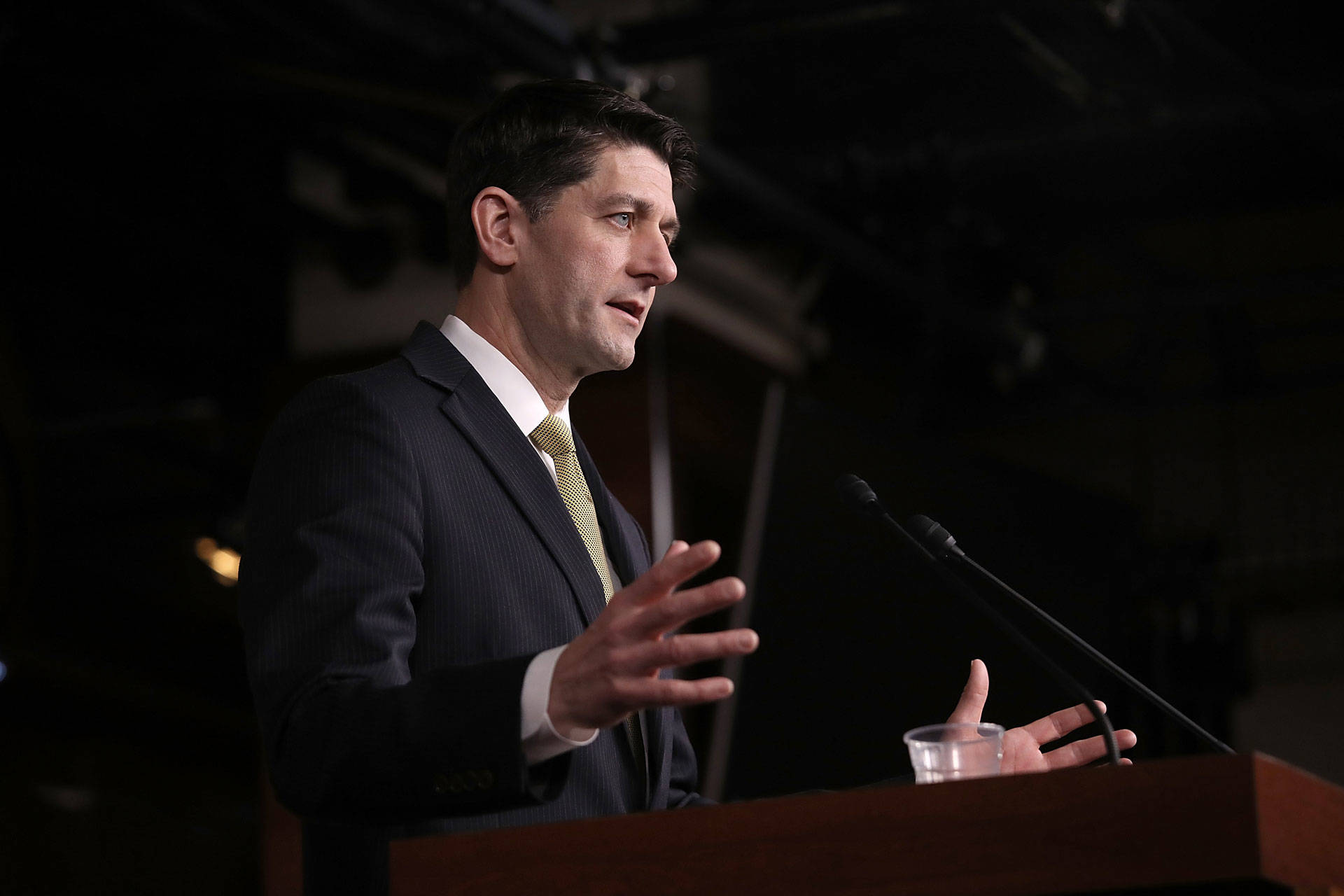Updated at 7:45 p.m. ET
The House passed a stop-gap funding bill Thursday evening, though the measure now faces uncertainty in the Senate as Republican congressional leaders work to avert a government shutdown by late Friday night.
Now Republicans need 60 votes in the Senate to proceed on the four-week continuing resolution, which would only extend funding until February 16. That is looking more and more difficult after most Democrats and at least three Republicans senators have said they won't vote for the bill.
The measure passed in the House, 230-197 with 11 Republicans voting against the bill and 6 Democrats voting for it, after House Freedom Caucus members reached a deal to vote for the bill. The group's chairman Mark Meadows, R-N.C., had initially claimed enough of his members would withhold support that the bill would fail with GOP votes only, but about an hour before the vote was expected to begin Meadows told reporters he received enough concessions from House Speaker Paul Ryan, R-Wis., including plans for future votes on additional military funding, that he would recommend his caucus vote for the bill. And Thursday evening, the group said on Twitter that a majority of its members has decided to support the stop-gap measure.
Democrats, however, want to include a fix for the Deferred Action for Childhood Arrivals program (DACA), set to expire in March, to protect the roughly 700,000 enrollees in the program who were brought to the U.S. illegally as children. And House Democrats have indicated they won't encourage their members to vote for the bill in order to bail out Republicans if the GOP falls short of the votes needed.

9(MDAxOTAwOTE4MDEyMTkxMDAzNjczZDljZA004))